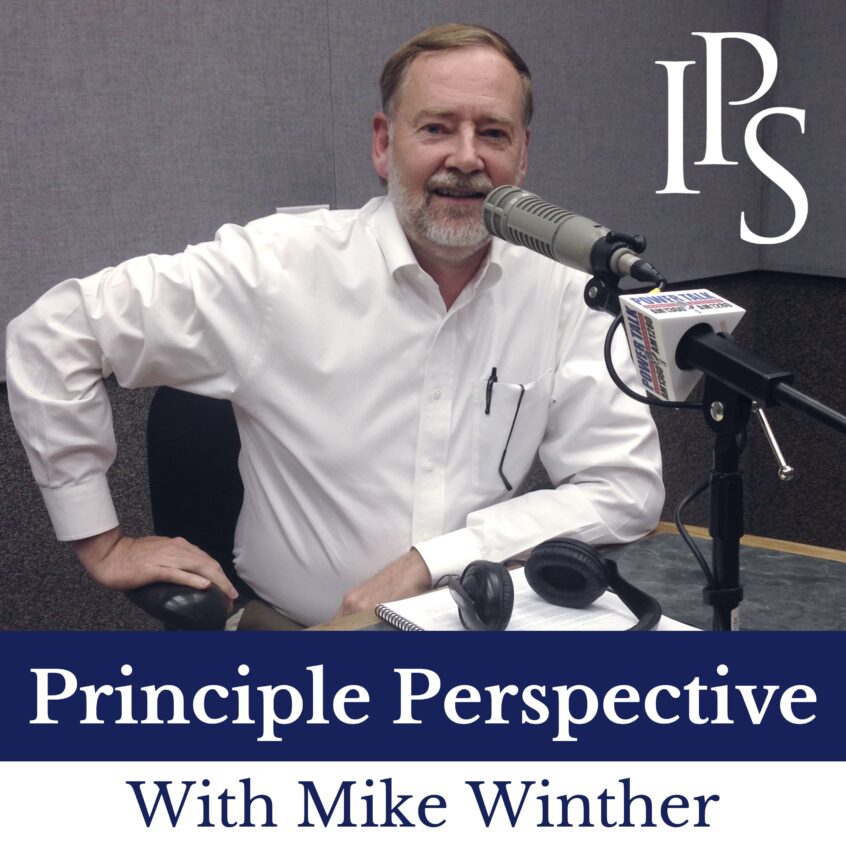LISTEN NOW
It’s time to discuss economics and our government from a biblical perspective. This is from a lecture by Mike Winther given over Zoom early on at the beginning of the pandemic. It was given on May 5th, 2020. Mike kicks the speech off by answering questions about executive orders and the three branches of the US Government. Mike stays close to the constitution and the original intention of our founding fathers. He also keeps everything from a biblical perspective.
He talks about checks and balances, current trends in our government, and the importance of learning about economics. How can we vote and contribute to good governance without being informed ourselves? He starts with Proverbs 11:1. Mike breaks down the definition of economics, the importance of an honest economic system, and what microeconomics and macroeconomics are. Then we dive into a hypothetical example of one person stranded on a tropical island and a micro-economy and the steps to grow to a larger economy.
You’ll Learn:
- [01:42] How do we look at executive orders from government officials? Please explain the three branches of government?
- [02:35] It’s not biblical to put too much authority in one human being such as a king.
- [04:55] When our founding fathers were creating the Constitution, their colonial governments had three branches of government. Having an executive, legislative, and judicial branch is a powerful way of organizing a government.
- [05:36] The US government is broken into three branches, executive or presidential, judicial or Supreme Court, and the legislative or congress.
- [06:00] Three branches of government were adopted based on scripture, specifically Isaiah 33:22.
- [07:44] Executive orders are not in the Constitution. They are not constitutional.
- [09:25] There seems to be a trend to move away from checks and balances.
- [10:50] Economics are important because a lot of what we do with the government concerns economics. To have a good government, we have to learn about good economics.
- [11:18] Proverbs 11:1.
- [13:31] Economics is how we measure productivity, money, everything we do in our economy. A dishonest economic system would be condemned.
- [14:52] Microeconomics is the study of the economics of a household, family, or a firm. Macroeconomics is the study of an entire region, a whole nation, or whole country.
- [16:03] We’re going to get stranded on an island and grow from a micro economy to a macro economy. The same principles are true for both disciplines.
- [16:30] Capital is the means of production or excess production. Tools and equipment are capital.
- [19:14] We’re stranded on a tropical island with no other human beings. We have water and catch fish. We make a spear and fishing is easier. By not spending all day gathering the fish, we have a higher standard of living and can cook the fish. The spear and the fire pit are both capital.
- [24:12] Capital and tools are part of the biblical mandate to go forth and multiply.
- [24:42] We build a shelter. Each day, we build more tools and have more capital.
- [25:31] Another word for excess production is profit.
- [26:31] We find someone else washed ashore. We specialize with our food gathering skills. We also trade.
- [29:10] Exchange or trade is the voluntary act of giving one thing in return for another.
- [30:31] It’s not wrong to have a higher standard of living.
- [31:52] Specialization matters. Time and resources can be focused on specific tasks.
- [33:46] Adding another person to the island. More specialization and trade. This cycle continues.
- [37:30] We go from barter to sand dollar currency.
- [39:13] One member of the group, Steven, found sand dollars on a secret beach and created inflation by causing an increase in the money supply. His extra sand dollars caused the price of everything on the island to increase.
- [41:22] Goods and services or wealth transferred from everyone else to Steven. Inflation is a wealth transfer. An increase in the money supply shifts wealth. The prices going up creates poverty.
- [43:15] Sand dollars weren’t scarce.
- [44:28] Money needs to be scarce, durable, and transportable. It should also be able to be divided into smaller segments. It also needs to have its own value.
- [46:46] It’s possible to inflate the money supply with traditional paper money or electronic money. If the Fed increases the money supply we get inflation.
- [48:56] We shouldn’t want the money supply to increase.
- [49:14] Money is also a store of value. Tools to make more money are called capital.
- [51:46] The true worth of money is actually what it will buy.
- [53:07] Inflation is really a way of stealing someone’s labor.
- [56:30] Money shouldn’t be manipulated by governments, because we can’t allow inflation to happen.
- [57:51] When governments inflate the money supply, there’s no way to equally dole out the new money. Some people get more than others but everybody suffers from the high prices caused by inflation.
- [58:59] Next time we will compare two economic systems, socialism and communism to a free market economy.
- [59:53] Capital is tools and the means of production. Money is a medium of exchange. Good money should be scarce and have its own value.
- [01:01:22] The more people you trade with the better off you are economically. Trade is good as long as people doing the labor are doing it voluntarily.
- [01:02:34] We do not need political globalization.
- [01:03:03] Government shouldn’t be participating in economic exchange. Trade should be between individuals and/or companies.
- [01:05:11] Our constitution only allows congress to make laws. The person who makes the law can’t be the person who enforces the law.
- [01:06:57] Our government shouldn’t be involved in charity. We should have volunteer charity.

